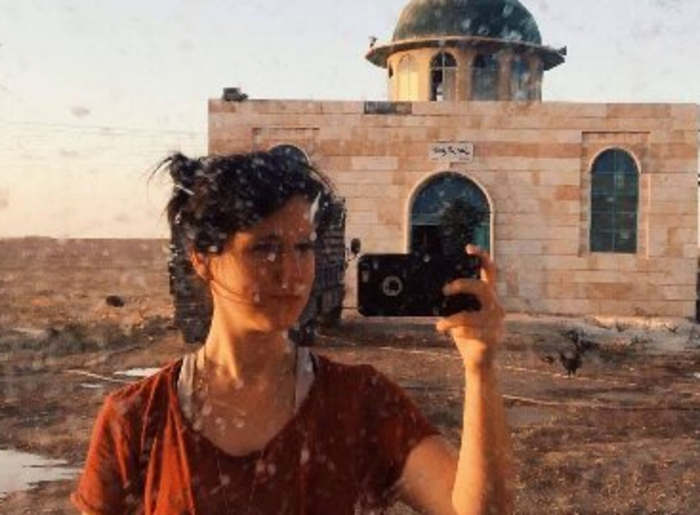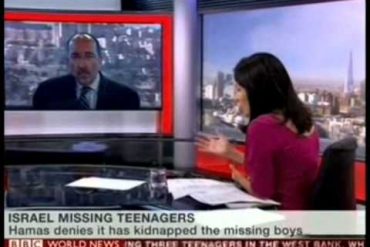A Guardian article by their Jerusalem correspondent Bethan McKernan (“Ukrainian spouses in Gaza suffer from double conflict“, June 27) focused on the problems faced by the “830 Ukrainian-born people living in Gaza”, some with relatives still in Ukraine, in the context of Russia’s war on the country.
McKernan’s piece included the following:
In general, Palestinian society supports Russia over Ukraine in the four-month-old conflict, viewing it as a proxy superpower struggle with the US, Israel’s most important ally.
Since she didn’t provide a source, we’ll briefly examine the issue of Palestinian support for Russia.
Though neither Hamas or the PA have taken an official position on the war, PA President Mahmoud Abbas and Hamas’s Ismail Haniyeh have, unlike Israeli leaders, refused to issue even mild criticisms of Russian aggression. Both also recently made overtures to Moscow seeking increased support from Vladimir Putin, who they see as an ally. There have also been a few pro-Moscow demonstrations in both the West Bank and Gaza, which is significant given that Hamas and the PA don’t hesitate to violently crack down on protests if they’re seen as undermining government interests.
However, the position of Hamas and the PA is not necessarily the same as Palestinian society. Indeed, research we found on attitudes of Palestinians about the war suggests that McKernan is likely wrong.
A late March poll of the West Bank and Gaza conducted in cooperation with the Konrad-Adenauer-Stiftung in Ramallah, by the Palestinian Centre for Policy and Survey Research – the only reputable polling on the issue that we’re aware of – showed that “the largest percentage of the public (43%) blames Russia for starting the war with Ukraine while 40% blame Ukraine”.
So, what was McKernan’s claim that “In general, Palestinian society supports Russia over Ukraine” based on? Her intuition? The views of her Gaza handlers? The famed taxi drivers NY Times columnist Thomas Friedman often speaks to in the region to gain insight that somehow eludes serious analysts, pollsters, politicians and diplomats?
Though we’ll never know for sure, the fact that McKernan’s assessment of Palestinian views of the war in Ukraine happens to be consistent with the diplomatic interests of Palestinian leaders suggests that ‘Palestinian support for Moscow’ may merely reflect the desired talking points of Hamas and PA officials.
As those following our blog already know, this is not among the more egregious factual errors by the Guardian Jerusalem correspondent that we’ve revealed. For instance, in one recent post we published scrutinising a podcast by McKernan about likely evictions of Palestinians in Masafer Yatta, we pointed out a series of significant distortions, unsubstantiated claims and outright errors.
It is, however, another indication that neither McKernan nor her editors appear to spend too much time engaged in the most basic journalistic task of fact-checking.
Related Posts
New Statesman erases IDF’s investigation into Abu Akleh’s killing





The only fact-checking that The Grauniad does is – Which latest incident is the most suitable for distorting in our reports to be the most damaging to Israel.
Simples !